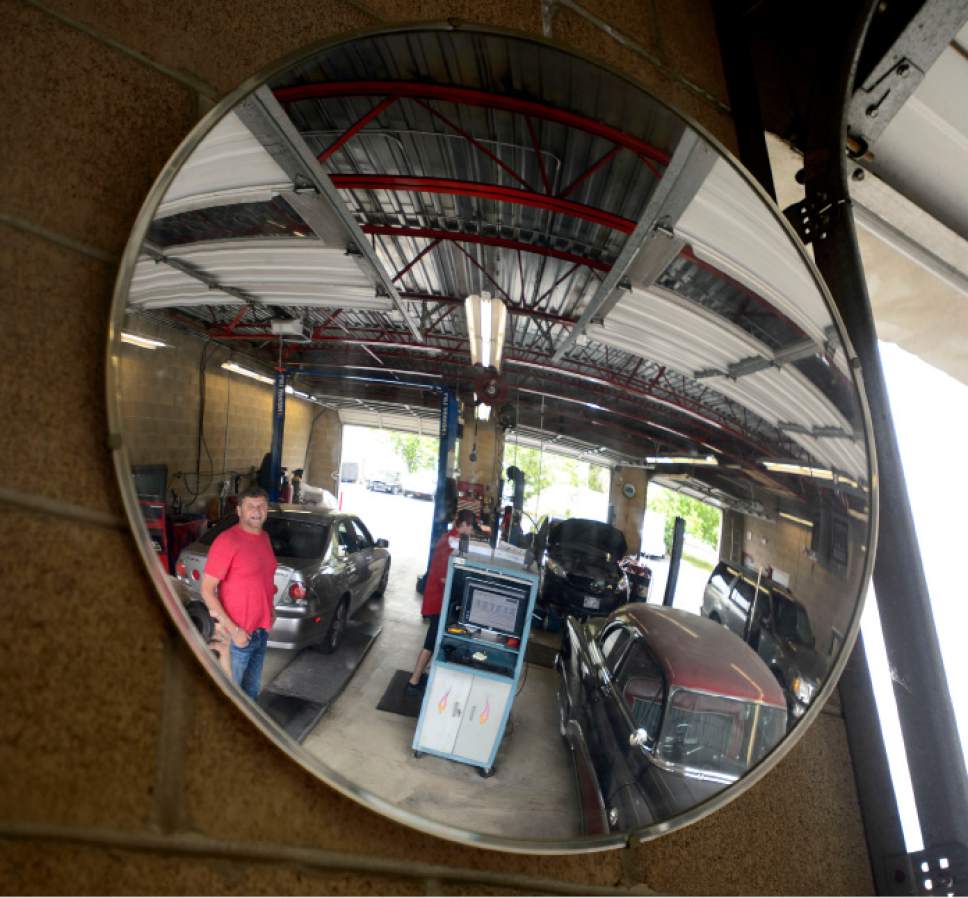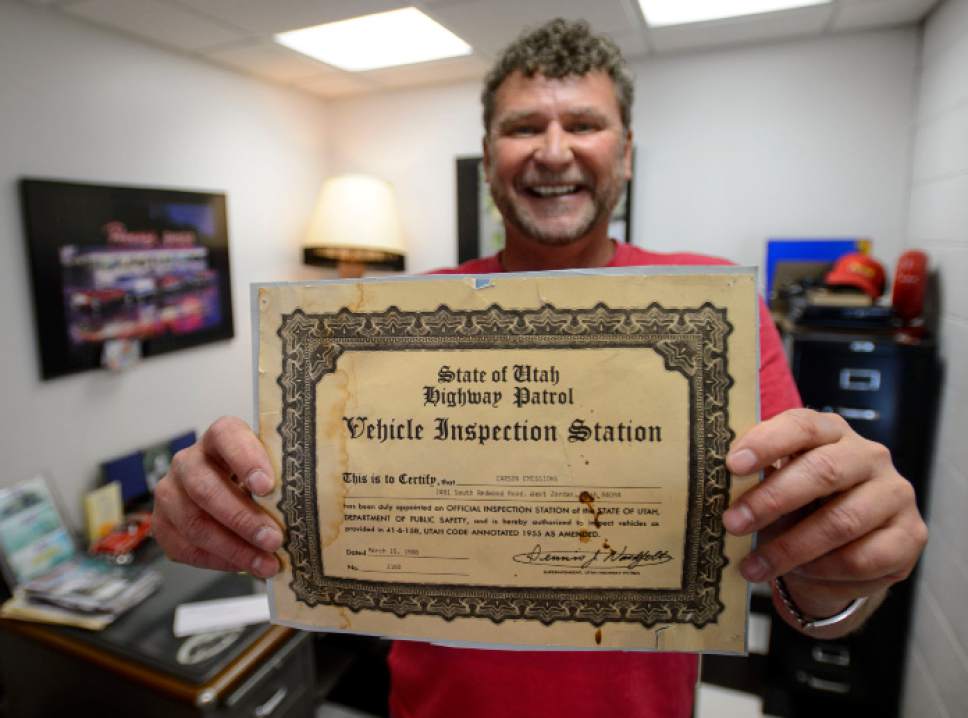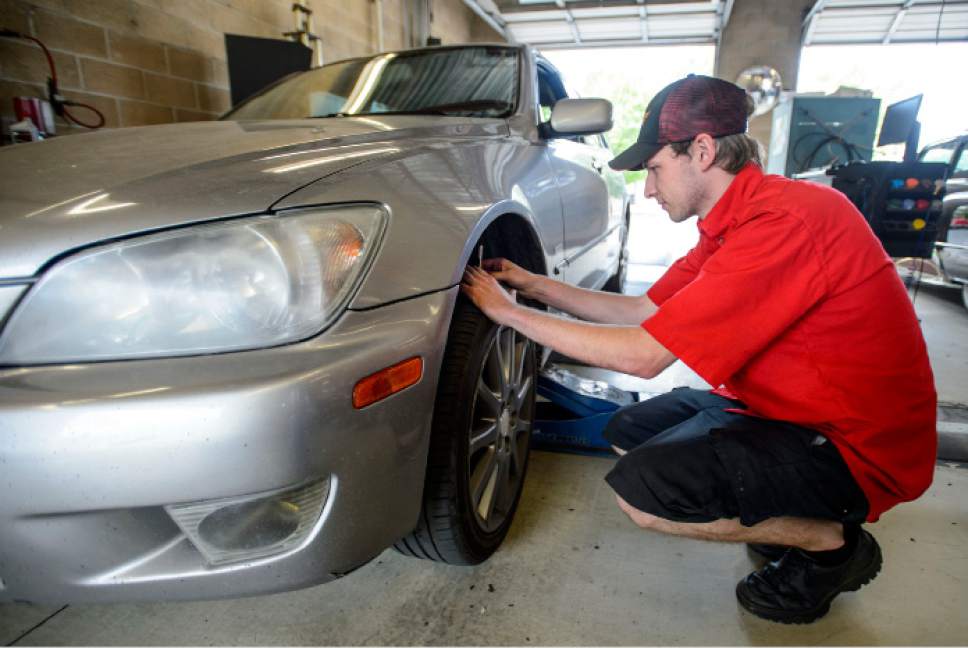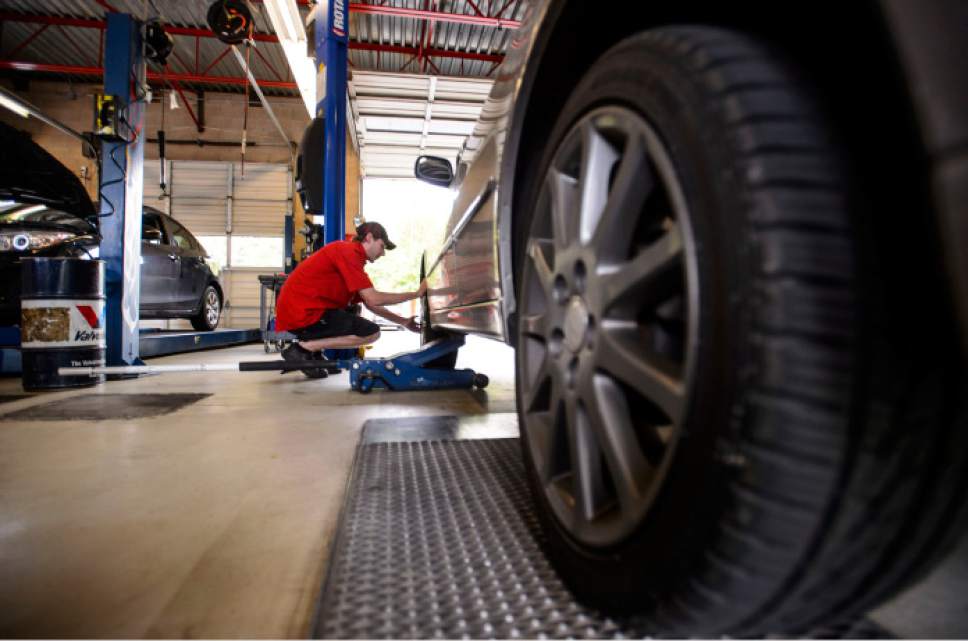This is an archived article that was published on sltrib.com in 2017, and information in the article may be outdated. It is provided only for personal research purposes and may not be reprinted.
West Jordan • The lobby of Speedway Safety and Inspection is often filled with impatient vehicle owners waiting for the completion of a government-mandated safety inspection of their cars.
Owners of some establishments like this one worry that there will be fewer such customers next year under a new law that will eliminate safety inspection requirements as of Jan. 1. Fiscal analysts estimate that the change will cost businesses $25 million per year — money taxpayers will save.
Kent Geis, a self-described "car guy" who owns multiple old vehicles, says he frequents Speedway more than most people. When he talked about the new law — HB265 — his face lit up.
"I always dread [the safety inspection]," he said. "I know what I'm doing when it comes to cars. I don't need to pay somebody to honk my horn, to run my windshield wipers and to check my brake lights. I'm perfectly capable of doing it myself."
When Geis stepped up to the counter to grab his car keys and pay for his inspection, he and the store's owner engaged in a spirited discussion about the necessity for such evaluations.
"Thanks for coming in here to tell me what I do is useless," said Mark Carson, who has owned and operated Speedway since 1998. "But we appreciate your business."
Bryce Carson, Mark's son, conducts safety and emissions inspections at Speedway and said tensions run high daily with customers who feel forced into paying $15 for an inspection they deem unnecessary. One benefit Bryce said he anticipates from the elimination of the requirement is that this agitation will settle down.
But Speedway's owner worries that the law may cause more harm than good, and he estimates that his business will lose $60,000 next year.
"We have a lot to offer our customers; I don't think we're going to perish," said Mark Carson, who predicts that his business will have to diversify its services to survive. He's working on plans to offer alignments, fuel-filter changes, transmission services and more in the future, which he said will require new equipment and training for his employees.
"Probably $20,000 will get me an air compressor and an alignment rack and some other equipment," Mark Carson said. "Automotive equipment is not cheap."
State Rep. Dan McCay, R-Riverton, the bill's sponsor, said the argument that some establishments will lose business is a "red herring."
"What they will lose money on or their fear of losing money is on repairs as a result of people not coming in for safety inspections," he said. "But when you talk to the businesses and interview those guys, they'll always say they're doing [the inspections] for nothing."
Establishments like Mark Carson's, which does not offer repair services, will "just need to change the way they do business," Mark Carson said.
His concerns about the new law go beyond his own business and extend to public safety, which he said will be lessened next year.
"How many vehicles with no brakes, bald tires, no mirrors and no lights do you want riding beside your family?" he said. "Cars wear out. They get damaged, their mirrors get knocked out, their tires go bald, their brake systems fail, their brakes wear out, their lights wear out. Who looks at that? Who does, you know? My mother is not looking at her tires. No one is inspecting the third brake light on my mother's car."
Mark Carson said many people believe safety inspections are simple. But as he plopped a safety manual of about 90 pages onto the table in front of him, he argued that that's not the case.
"All these guys have to go to school to get certified to do this," he said. "This is made by the Highway Patrol, and these are important items for safety. Otherwise, the Highway Patrol wouldn't have made this."
Supporters of the law, however, say it will have no effect on public safety and will save taxpayers time and money.
"We did a study out of BYU and backed it up with research," McCay said, "and there was absolutely no change in safety."
The U.S. Government Accountability Office, the research arm of Congress, issued a 2014 report saying it found no definitive evidence that mandatory inspection programs reduce accidents, noting that crash rates are about the same in states that have them as in those that do not. But it did add that states with those programs do find and correct all sorts of safety problems.
Now that the mandate for safety inspections is on the way out, Geis, the car guy, said individuals will need to educate themselves about their vehicles. And if they don't want to, he has a solution for that.
"Once they get rid of the inspection, then if people want that security knowing that it's done, then, hey, come to me," he said. "I'll do it for you. I'll check your brake lights for you. I'll honk your horn. I'll check your suspension. 'Yep, you're good, man. Pay me the 15 bucks.' No problem whatsoever."
tstevens@sltrib.com Twitter: @tstevens95









